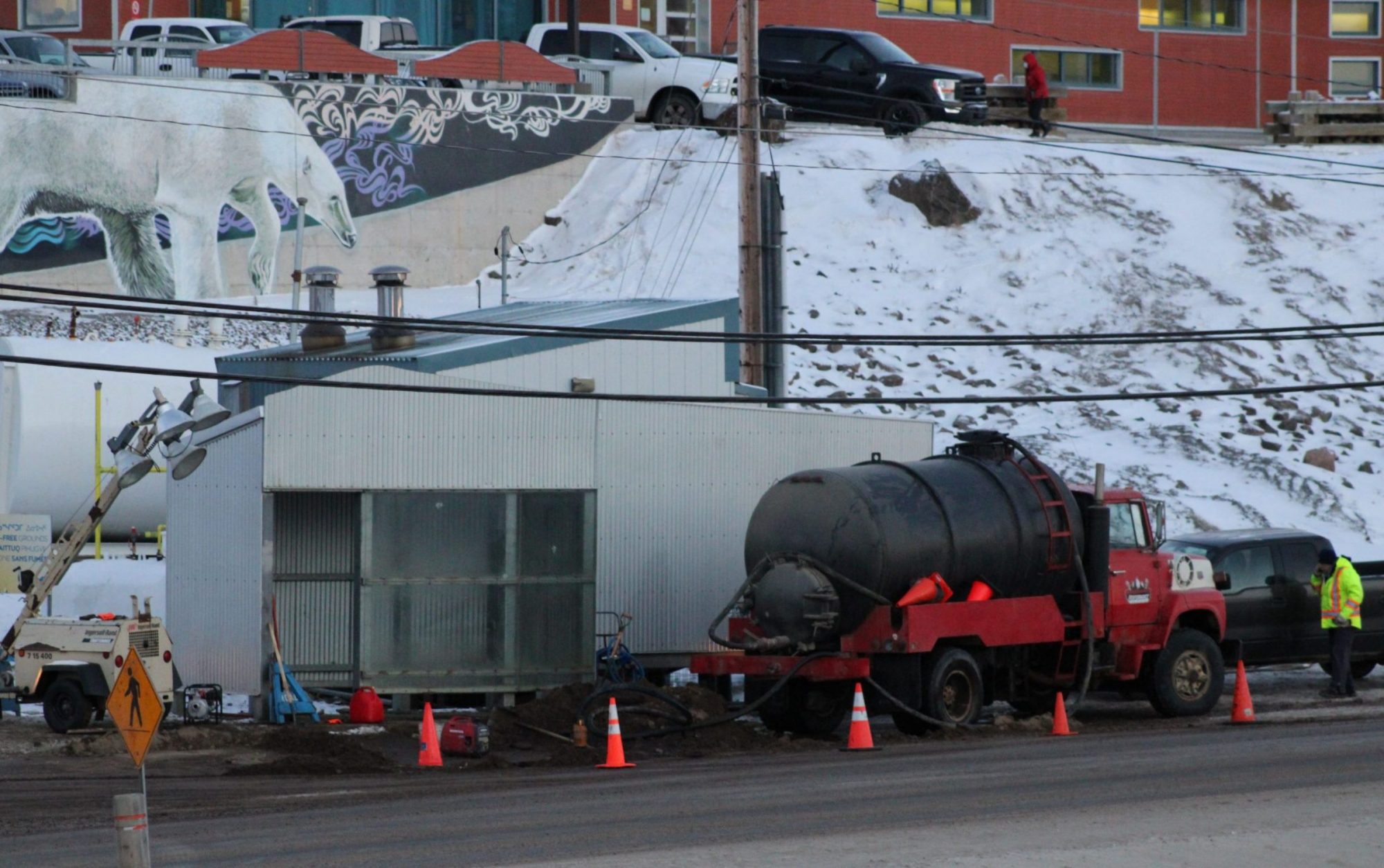A propylene glycol spill could make Iqaluit government buildings more expensive to heat this winter
A district heating system is expected to be offline for several months after a worker accidentally drilled into pipe near the hospital.

Iqaluit’s hospital, aquatic center, courthouse and college will be more expensive to heat this winter, after a construction accident last week took the district heating system connected to these buildings out of service.
Qulliq Energy Corporation operates the heating system. Qulliq spokesperson Renee Boucher said in a statement to Nunatsiaq News that customers hooked up to it save approximately 10 to 14 percent on heating costs.
The district heating system works by taking excess heat from the power station’s diesel generators and transfers it to other buildings through pipes filled with a mixture of water and propylene glycol, an odorless chemical that transfers heat well.
Iqaluit will also end up producing additional carbon emissions because the affected buildings will be reliant on diesel as a replacement heat source. Normally, the district heating system displaces 1 million liters of heating fuel annually, the statement from QEC said.
The district heating system is expected to be shut down for several months, after one of its pipes broke near the hospital on Nov. 30.
A worker accidentally punctured the pipe while drilling into the ground for a sewer project, city spokesperson Aleksey Cameron said.
Between 22,000 to 33,000 liters of a mix of half propylene glycol and half water spilled, according to the QEC. Most of the spill was cleaned and stored while the energy corp. estimates 200 to 400 liters were released into the environment.
According to a statement from the city, propylene glycol is “relatively non-toxic to humans and wildlife.”